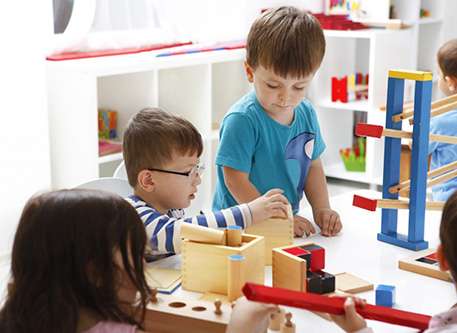Pre-kindergarten effects – what the science says

How well are we preparing young children to enter kindergarten ready to learn? Educators in K-12 school systems are faced with wide disparities in skill levels of entering kindergarteners, which means many children are already far behind many of their peers.
Findings in developmental science point toward the importance of early-life experiences in shaping brain development. These findings suggest that if we knew how to provide these experiences in our early education programs, we could have a lifelong impact on children's success.
The good news, according to numerous studies, is that children attending publicly funded pre-kindergarten programs are better prepared for kindergarten than similar children who have not attended pre-k.
While some studies have shown the advantages persist well into elementary school, two reports—one based not on pre-k but on Head Start, and one on the Tennessee Voluntary Pre-K program—have led some policymakers to question whether pre-k can provide the persistent effects that undergird an ambitious agenda for pre-kindergarten programs. Both studies found positive impacts on children's skills at the end of the pre-k year, but not later in elementary school.
To answer questions about the likely impacts of pre-k programs and factors that distinguish effective early learning programs, a group of leading researchers came together to develop a comprehensive report and consensus statement about the state of knowledge on pre-k education.
On April 17, The Brookings Institution released the report on the role of pre-k curriculum, cost-benefit studies, financing and more, titled "The Current State of Scientific Knowledge on Pre-Kindergarten Effects." It includes a "consensus statement" about the current state of scientific knowledge on pre-kindergarten.
Professor Kenneth Dodge, director of the Duke Center for Child and Family Policy, co-authored the report and consensus statement. Professor of Public Policy and Economics Helen Ladd wrote a chapter focusing on whether some children benefit more than others from pre-k. Both Dodge and Ladd participated in the discussions held at the Brookings Institution in Washington, D.C., for the release of the report.
A summary of the consensus:
- Studies of different groups of preschoolers often find greater improvement in learning at the end of the pre-k year for economically disadvantaged children and dual language learners than for more advantaged and English-proficient children.
- Pre-k programs are not all equally effective. Several effectiveness factors may be at work in the most successful programs.
- Children's early learning trajectories depend on the quality of their learning experiences not only before and during their pre-k year, but also following the pre-k year.
- Convincing evidence shows that children attending a diverse array of state and school district pre-k programs are more ready for school at the end of their pre-k year than children who do not attend pre-k. Improvements in academic areas such as literacy and numeracy are most common.
- Convincing evidence on the longer-term impacts of scaled-up pre-k programs on academic outcomes and school progress is sparse, precluding broad conclusions.
- Ongoing innovation and evaluation are needed during and after pre-k to ensure continued improvement in creating and sustaining children's learning gains.
More information: childandfamilypolicy.duke.edu/ … udy_FINAL_ForWeb.pdf
















